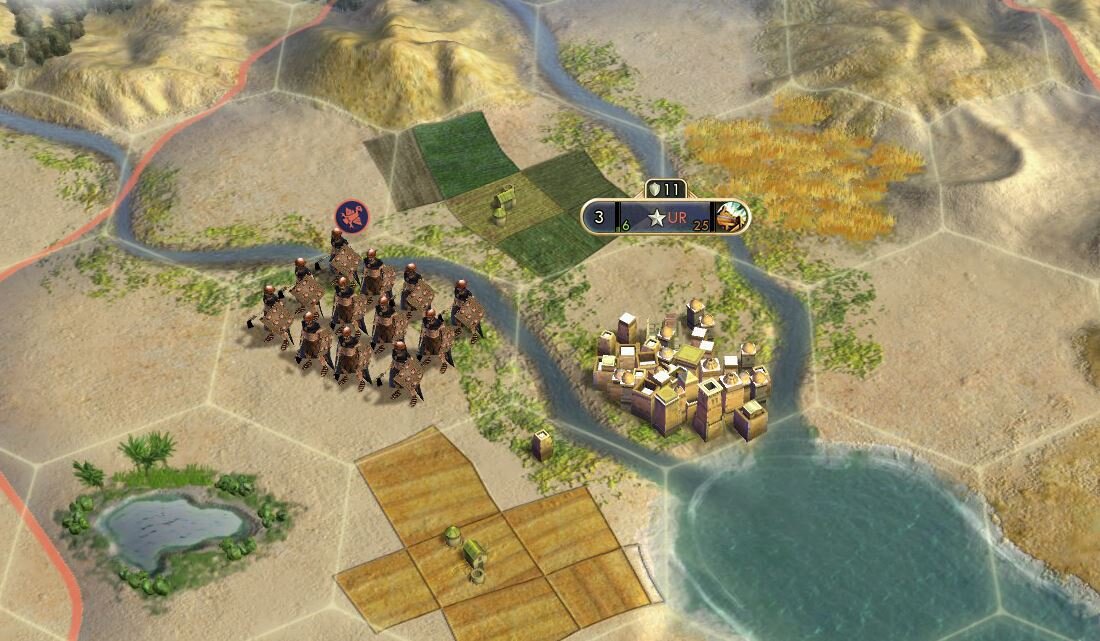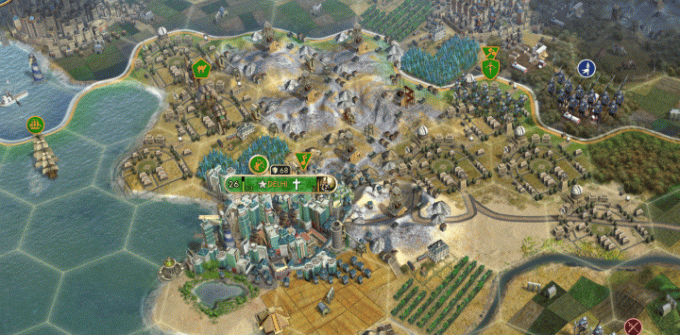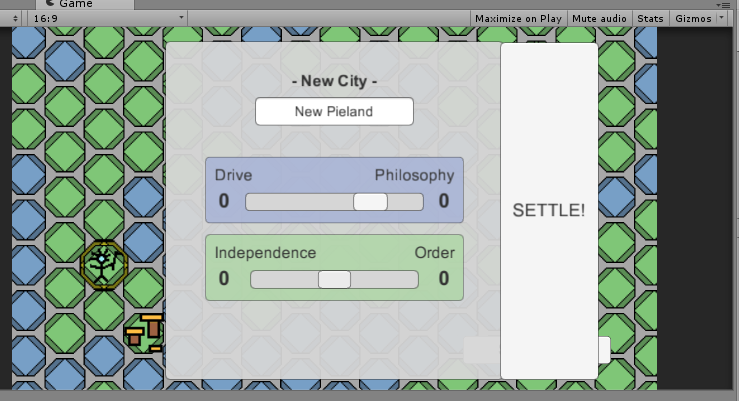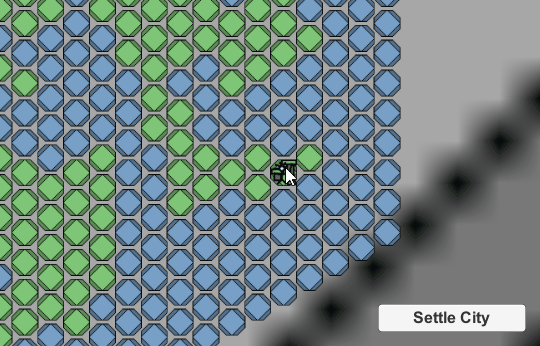SimpleCiv — Cities as RPG characters
"A game is a series of interesting choices." - Sid Meier
I'm going to argue that Civilization V fails at that central conceit of game design for the central mechanic of the series: cities.
About a year back, I had a month-long affair with Civ V. I love idea of a civilization growing and expanding across the landscape, shaping and being shaped by the world. I would agonize over the precise placement of cities. I would lovingly craft roads and farms and mines. I felt accomplished when I connected cities and completed trade routes. I would slyly place cities in mountain passes to act as gatekeepers, or on thin strips of land to act as canals between oceans. I would write fanfiction-style narratives of their creation stories.
But inevitably, the game stopped being fun. Soon the landscape became fully exploited: a mine on every hill, a farm next to every river, lumber mills dotting every forest. Cities had built everything from the lower tiers. The order that I had done things didn't matter. The cities were homogenous, and the only thing that really mattered was their production (or culture) generation score. Managing cities was a slog -- why did I care what to build next if I was going to get everything, eventually? I had been offered a series of interesting false choices.
What's worse, there's no incentive or even space (due to the rat-race of opponents) to choose to not participate in exploiting the landscape and optimizing my cities. A mountain is strictly more valuable with a mine on it. The tech tree is the worst of all. Either you scramble up the tree or get left behind and steamrolled by your neighbor's gunpowder units.
I find it depressing that I can't say that all this is an inaccurate representation of post-industrial imperialist civilization, and I'm not the first one to gaze upon the exploited land of my civilization with horror. But as a designer, I have the privilege of asking myself: how would I make the game to emphasize the parts I like?
Enter another new project of mine, titled SimpleCiv (for now). Here are my starting points of design:
-
Offer real choices during city development and specialization. It struck me immediately that a perfect system for this already exists in western RPG character creation. Instead of warrior/rogue/wizard, we have military/economy/industry. By offering multiple levels of simple interactions (attribute points, skill points, races, classes, feats, abilities) you can get a huge possibility space. For cities, these could be cultural values, traditions, institutions, buildings -- the key point is either have tradeoffs or severely constrict the number of choices at each level. That means potentially not having the space for both a granary and barracks in a city.
-
Do away with the tech tree entirely. The game state should progress purely as a function of what's "on the board". I may relent on this at some point to make a simple building-based pseudo-tech-tree (as you see in RTS games) to allow for a more explicit late game. But you should think of it as a wizard learning a new high-level spell.
-
How do cities grow? In 4X games, it's pretty much always tied to food production over time. In RPGs, it's by interacting with the world around them (frequently through combat). My first thought is to have an amount of wealth "in circulation" for each city that acts a bit like a proxy for XP. I'll have to think more about where it originally comes from, but trade routes and military excursions can move it from one city/civ to another. However it works, I would like it to:
-
Require interaction with the world/other players. You can't play the game by just turtling + building a positive feedback loop.
-
Not require violence.
-
Offer opportunities for role-playing by allowing multiple avenues for progression.
-









